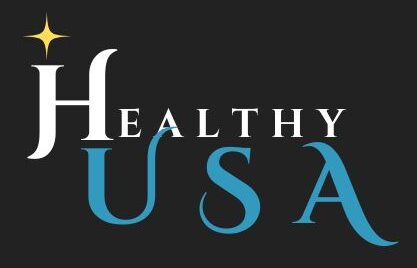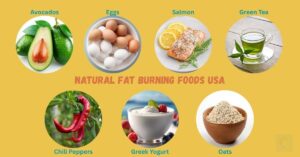Modern women juggle multiple roles careers, families, and personal wellness often leaving their own health at the bottom of the priority list. But here’s the truth: your body needs consistent nourishment to keep up with your demanding lifestyle. The best daily vitamins for women are not a luxury they’re a necessity for maintaining energy, balancing hormones, supporting bone health, and preventing chronic deficiencies.
Whether you’re in your 20s, 40s, or beyond, your nutritional needs evolve with time. From reproductive years to menopause and beyond, vitamins and minerals play a vital role in everything from metabolism and immune function to cognitive health and beauty.
Let’s explore which vitamins are essential for women, what they do for your body, and how to find the best daily vitamin formula tailored to your needs.
Why Women Need Specific Vitamins
Women’s bodies go through unique physiological changes menstruation, pregnancy, menopause, and hormonal fluctuations all of which create different nutritional demands compared to men. While a balanced diet should ideally provide all the nutrients, lifestyle factors, processed foods, and stress often lead to gaps that supplements can help fill.
The best daily vitamins for women should address:
- Iron loss from menstruation
- Calcium and Vitamin D needs for bone health
- B vitamins for energy metabolism
- Folic acid for reproductive health
- Antioxidants for skin and cell protection
Top Essential Vitamins and Minerals Every Woman Needs Daily
1. Vitamin D – The Sunshine Vitamin
Vitamin D supports calcium absorption and plays a vital role in maintaining bone strength, immune health, and hormonal balance. Unfortunately, nearly 60–70% of women are deficient due to limited sun exposure and diet.
Why it matters for women:
- Helps prevent osteoporosis
- Regulates mood and supports mental well-being
- Strengthens the immune system
Best sources: Fatty fish (salmon, tuna), fortified milk, egg yolks, and sunlight.
Recommended daily intake: 600–800 IU for adults, though some may need more based on blood levels.
2. Calcium – The Bone Protector
After age 30, women gradually lose bone density, increasing the risk of fractures and osteoporosis. Calcium helps maintain strong bones and teeth and supports muscle contraction and nerve transmission.
Why it’s essential:
- Reduces bone loss post-menopause
- Helps with heart and muscle function
Best sources: Dairy products, kale, broccoli, almonds, and fortified orange juice.
Recommended daily intake: 1000 – 1200 mg per day.
3. Iron – The Energy Mineral
Iron is crucial for forming hemoglobin, which transports oxygen through your blood. Low iron levels can lead to fatigue, weakness, and poor concentration issues many women face due to menstrual blood loss or vegetarian diets.
Why women need it:
- Replenishes iron lost during menstruation
- Prevents anemia and fatigue
- Supports brain function
Best sources: Red meat, spinach, lentils, and fortified cereals.
Recommended daily intake: 18 mg for women aged 19–50.
4. Vitamin B12 – The Brain and Energy Booster
Vitamin B12 supports energy production, nervous system function, and red blood cell formation. Deficiency can cause fatigue, numbness, and cognitive fog especially common in vegetarians or women over 40 whose absorption ability decreases.
Why it matters:
- Supports brain and nerve health
- Prevents anemia
- Boosts metabolism and energy levels
Best sources: Fish, eggs, dairy, and fortified plant-based milk.
Recommended daily intake: 2.4 mcg.
5. Folate (Vitamin B9) – The Women’s Reproductive Vitamin
Folate is vital for DNA synthesis and cell growth. For women of childbearing age, it’s essential in preventing neural tube defects in newborns. Beyond fertility, it supports mood regulation and heart health.
Why it’s important:
- Supports fetal development during pregnancy
- Promotes red blood cell formation
- Helps manage homocysteine levels (linked to heart disease)
Best sources: Leafy greens, citrus fruits, beans, and fortified grains.
Recommended daily intake: 400–600 mcg.
6. Vitamin C – The Immune and Skin Defender
Vitamin C acts as a powerful antioxidant, helping to protect cells from oxidative stress. It also enhances collagen production, which keeps your skin youthful and firm.
Why it matters for women:
- Strengthens immunity
- Boosts collagen for skin elasticity
- Aids iron absorption
Best sources: Oranges, strawberries, bell peppers, kiwi, and broccoli.
Recommended daily intake: 75 mg.
7. Vitamin E – The Antioxidant Shield
Vitamin E protects cells from free radical damage and supports healthy skin and hormone balance. It also enhances immune defense and may improve PMS symptoms in some women.
Why women need it:
- Promotes glowing, youthful skin
- Supports reproductive health
- Reduces oxidative stress
Best sources: Almonds, sunflower seeds, spinach, and avocados.
Recommended daily intake: 15 mg.
8. Magnesium – The Stress and Sleep Regulator
Magnesium supports over 300 biochemical reactions in the body, including muscle relaxation, nerve function, and energy metabolism. Many women with hormonal imbalances or high stress have low magnesium levels.
Why it’s important:
- Reduces PMS symptoms and muscle cramps
- Supports better sleep
- Aids mood balance
Best sources: Nuts, seeds, leafy greens, and whole grains.
Recommended daily intake: 310–320 mg.
9. Zinc – The Immunity and Fertility Mineral
Zinc is essential for immune response, wound healing, and hormone production. It also plays a crucial role in ovulation and reproductive health.
Why women need it:
- Strengthens immunity
- Supports healthy skin and wound healing
- Regulates hormonal balance
Best sources: Oysters, pumpkin seeds, beans, and whole grains.
Recommended daily intake: 8 mg.
10. Omega-3 Fatty Acids – The Heart and Brain Ally
Though technically not a vitamin, omega-3 fatty acids (EPA and DHA) are crucial for cardiovascular, cognitive, and joint health. Women who don’t consume fish regularly often benefit from omega-3 supplements.
Why it’s vital:
- Supports brain and heart function
- Reduces inflammation and joint pain
- Helps manage hormonal mood swings
Best sources: Salmon, chia seeds, flaxseed, walnuts, and fish oil supplements.
Recommended daily intake: 250–500 mg combined EPA/DHA.
How to Choose the Best Daily Vitamins for Women
With countless multivitamins available, choosing the right one can be confusing. Here’s what to look for:
- Age-appropriate formula: Nutrient needs differ in your 20s, 40s, and 60s. Choose a formula for your age group.
- Comprehensive nutrient blend: It should include essential vitamins (A, C, D, E, B-complex) and minerals like calcium, iron, and magnesium.
- Third-party tested: Look for products tested by independent labs for quality and purity.
- Bioavailable forms: Choose vitamins with active forms (like methylated B12 or folate) for better absorption.
- Avoid unnecessary additives: Steer clear of artificial colors, sweeteners, or fillers.
Best Daily Vitamins for Women by Life Stage
Women in Their 20s and 30s
Focus on folate, iron, and B vitamins for fertility, energy, and hormonal balance.
Women in Their 40s
Prioritize calcium, vitamin D, and magnesium to support bone and heart health.
Women Over 50
Look for extra vitamin B12, calcium, and vitamin D for strong bones, mental clarity, and energy.
Tips for Getting the Most from Your Vitamins
- Take vitamins with food for better absorption.
- Stay hydrated some nutrients need water for metabolism.
- Pair vitamin D with healthy fats (like avocado or nuts).
- Avoid taking calcium and iron together, as they compete for absorption.
- Maintain a balanced diet supplements complement but don’t replace healthy food.
Potential Risks of Over-Supplementation
While vitamins are beneficial, more isn’t always better. Over-supplementation of fat-soluble vitamins (A, D, E, K) can lead to toxicity. Always follow recommended dosages or consult a healthcare provider before starting new supplements, especially if pregnant or taking medications.
Conclusion
The best daily vitamins for women are those that fill nutritional gaps, support your body’s natural functions, and enhance overall vitality. From bone health to brain function and hormonal balance, these nutrients empower women to thrive at every stage of life.
A well-chosen multivitamin, paired with a nutritious diet rich in whole foods, can help you stay energized, youthful, and strong because your body deserves the best care every day.
FAQs:
1. Are multivitamins necessary for women?
Yes, especially if your diet lacks variety or you have specific deficiencies. They help cover nutritional gaps.
2. Can I get enough vitamins from food alone?
A balanced diet can meet many needs, but stress, aging, and hormonal changes often require additional support.
3. When is the best time to take daily vitamins?
Morning with breakfast is ideal for most, especially B-complex and multivitamins.
4. Should women over 40 take vitamin D daily?
Absolutely it supports bone strength, mood, and immunity, especially if sun exposure is limited.
5. Which vitamins help improve skin and hair?
Vitamins A, C, E, biotin, and zinc all contribute to healthy, glowing skin and stronger hair.
6. Are gummies as effective as capsules?
They can be, but check for sugar content and ensure they contain sufficient nutrient levels.







